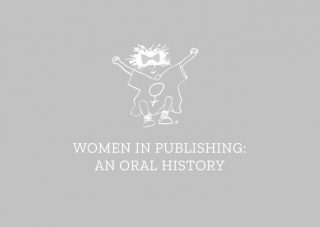2 Sue Bennett reflects on the unique nature of the Oxford publishing scene

Transcript:
There was quite a discussion between ourselves and the London group, in the early days, about were we going to be a little sister of, or were we going to be grown ups and stand on our own? And we voted that we wouldn’t be a little sister, that we would take the bits that we felt were relevant to us.
If you think about the nature of the big companies, the big publishing companies in Oxford, you’ve got OUP, been around since 1478, very male dominated, very, kind of old fashioned, did all these wildly uncommercial academic books. So very august, in this beautiful golden sandstone building, you couldn’t get more Oxford than that really. So that’s one of the big employers.
Then you’ve got Basil Blackwell, well it’s all in the name. It’s a family. It’s a family business very dominated by the Blackwell family. Very dominated by him because when I came into publishing he was still around. Big figure. And all these different sons and so forth from the family. And they were in on a daily basis into Blackwell’s. So that’s a family business, again male. Family business.
And then you’ve got Pergamon, well, need I say more, Bob Maxwell. You know, Robert Maxwell, up the hill in Headington Hill Hall. So, you know, if you think of the nature, you’ve got those three big traditional male-dominated and in two of them, Basil Blackwell and Pergamon, very dominated by big men.
And I think for those reasons, we felt that we were very different from the publishers that were here in London that were, you know, everything from sort of small publishers like Kogan Page through to some of the big houses like Heinemann and so on. Just a much bigger, much bigger world than ours.
And as I recall, that’s a kind of discussion that we had, when we were saying, well what do we want to be? How should we be? What’s, and we did it from a needs basis, what are our needs? And we didn’t want to be just slavishly borrowing from London.
And I think we decided that what we most needed was we needed to get to know each other. We needed to support each other, because of this domination of these three businesses in Oxford publishing, we were facing, you know, a gentleman’s profession. You know it was, we found ourselves in a very male-dominated environment and so we wanted to support each other, we wanted to network with each other.
We did feel that there was a strong need to learn. So that came out quite early on. We’ll never progress unless we are more knowledgeable and more skilful and hence the training. We started to do the training quite early on.




No Comments
Add a comment about this page